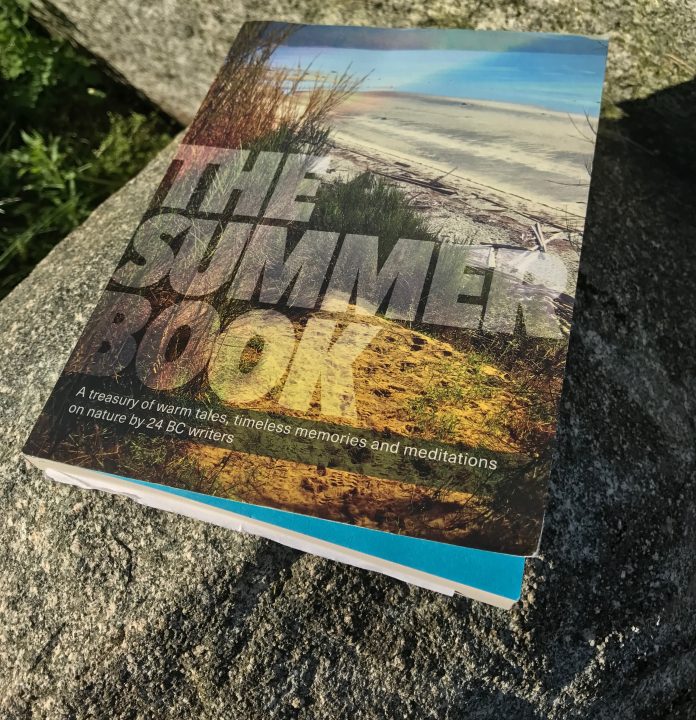The Summer Book is a collection of personal essays — poignant and ambrosial — by 24 B.C. writers. Each piece is a reflection on summertime and its many flavours.
It’s a compilation of short works — makes for convenient busy-summer reading; or, sun bathing on a beach; delaying evening’s retirement; vacation reading. It suits all settings.
The essays were written by an assortment of non-fiction, fiction, and poetry writers. This diversity of authorship spreads their topical commonality over varying styles and interests — always telling of a personal relationship to the season. Some of the content: summer brings out the worst in people; summer won’t last; summer is joy; summer is remembering to be present while pushing out-of-mind the nearing fall.
The book contains the memories of many, it’s reminiscent. It evokes a reflection of one’s own summer experiences. Whether or not every story pleases, they can be appreciated for the personality each essay brings. Personal is a key word, but not secret — meant to be shared.
As a book about summer, in all of summer’s diversity, some stories weigh heavy and poignant. Claudia Cornwall’s “The Red Canoe” shares a memoir so intimate it’s best read in solitude, to not be interrupted by anything, giving her story devotion and time to learn about how time heals.
Eve Joseph writes in “The Summer Within”: “It’s not the sentimental yearning of nostalgia or the pensive sadness inherent in melancholy; rather, it has to do with the gap between what once brought pleasure and joy and the emptiness we feel when that person or place is absent.” This narration is pensive.
Written so that the stories chronicle a could-have-been summer, experienced by someone else but retold for all. I remember the summer when “the spectre of fall and winter looms no matter how hard I push it away” — a line Luanne Armstrong writes in “Summer Break.” In it she contemplates timelessness, and where it rests in a torrent of rushing time. There’s peace in summer — on the beach. There’s also the real world — everything beyond.
“How to cope or understand or even live with the world in a state of such frightening fragmentation where there is both the paradisial beach and the black muck of ‘news,’” writes Armstrong.
Each story is an attempt to package a beautiful piece of summer, each of the essays remembering all of the summer moods — golden evenings; seaside spray; ancient coastal gardens; moonlit, moon-warmed evening walks.
Though comprised of unique and intimate parts, as a body it says that experiences are not necessarily discernible, but they are timeless. They are memories, which narrate our lives.
Beneath a chipped oyster shell, in gardens’ idylls, within sight and just out of reach of the shore, summer holds many meories, and summer alone has many seasons. The Summer Book’s memories of summer are a summer delight.


